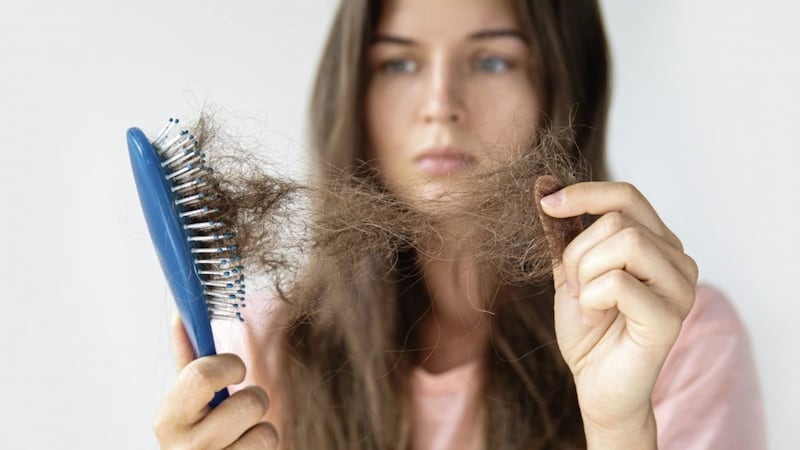HAIR loss can have a big impact on those affected, young and old, but what causes it and will it grow back?
:: What is alopecia?
There are many types of alopecia, the most common being the predominantly hereditary androgenetic alopecia, or ‘male or female pattern baldness’. Another common type is alopecia areata, which can causes patchy hair loss, with typically circular bald patches that range in size. For some, total baldness can develop (alopecia totalis), or total loss of all body hair (alopecia universalis), although this is more rare. Consultant dermatologist Dr Sharon Wong says alopecia areata is an autoimmune condition, in which the immune system attacks growing hair follicles.
“Alopecia is a term many are familiar with but is actually often misunderstood. The word alopecia simply means hair loss – nothing else,” she says.
:: Are some people more likely to get alopecia?
Alopecia areata can affect anyone, children and adults, says Dr Wong. However, she continues: “Genetic factors are important. In 20 per cent of those affected, there’s a family history of alopecia areata. The risk of developing it may also be greater in those with a personal or family history of other autoimmune conditions. In some, stress can be a trigger, but in many people no specific trigger is identified.”
A ‘trigger’ simply means something that prompts the symptoms to start, in people who may already have been more predisposed to developing them. Other triggers might include a viral infection or trauma.
:: Does hair grow back?
There’s no cure for alopecia areata, although some people may choose to try treatments. However, many find it gets better on its own after a while, or patches come and go in episodes. Dr Wong says up to 80 per cent of adults with small patches of alopecia areata on the scalp will spontaneously regrow hair with no treatment, usually within a year. “But hair loss can sometimes get worse before it gets better,” she adds.
:: What impact can alopecia have?
Hair loss can have a very big impact, particularly on things like self-confidence and mental wellbeing. “To lose hair, for many people, feels like they’ve been stripped of their identity. It is never ‘just hair’,” stresses Dr Wong, who says because alopecia areata can cause very sudden hair loss, those affected often don’t have much time to come to terms with it and have to quickly adapt to their new appearance. They also don’t know whether their hair will ever regrow, which can be very distressing.
“Alopecia can have profound and far-reaching effect on a person’s self-esteem and confidence, with consequences for their personal, social and work life,” she continues. “Anxiety, depression, and social phobias are common consequences of hair loss, which are sadly too often overlooked and trivialised.
“Hair is part of our daily grooming routine; it’s a beauty asset for many men and women and in others it holds significant religious and cultural meanings.”
:: What treatments are there and how successful are they?
There’s no rule that says you have to ‘treat’ alopecia, but for those who are interested, steroid scalp solutions, steroid injections into the hair loss area, or oral steroids are the most common treatments for alopecia areata. “Steroid injections can be highly effective,” says Dr Wong, “resulting in hair growth in around 60-80 per cent of patients, particularly if treated early and in those with less extensive hair loss.”
Other treatments include topical immunotherapy, which deliberately creates irritation on the scalp surface to act as a decoy to distract the immune cells away from the hair follicle, and immune suppressant drugs, which dampen the effect of the immune system.








